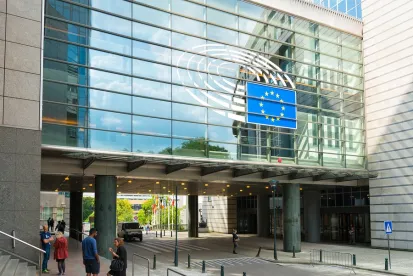The Environment Bill is published, setting out post-Brexit environmental governance.
The most discussed aspects of the Bill are the environmental principles and the establishment of the Office for Environmental Protection (OEP). The principles will apply in place of the EU treaty principles after Brexit. The Bill requires a policy statement to be prepared explaining how the principles will be interpreted and proportionately applied. The statement “may” also explain how ministers are to take into account other considerations when applying the environmental principles. The policy statement will be consulted on, and ministers will be required to have regard to it when making relevant policy decisions (and it seems that a wide range of policy areas, such as tax, spending and allocation resources, will not be relevant types of policy decision). This seems to be a low threshold to meet and these principles will potentially have a much lower impact than the equivalent EU ones which are more overarching and must be met. The OEP will have powers to give an “information notice” to a public authority that it suspects has seriously failed to comply with environmental law and to give a “decision notice” where it is satisfied that there is such a failure, setting out steps to be taken. The OEP can also judicially review the conduct described in the decision notice. There has been widespread criticism of the Bill and many commentators feel the new principles and “watchdog” are not robust and effective enough.
Defra publishes its long-awaited Resources and Waste Strategy for England.
This was announced in the 25-year plan in early 2018. Key areas covered by the strategy are further extending producer responsibility to make producers pay the full costs of disposal and to cover more products; strengthening the circular economy by supporting and removing obstacles from re-manufacturing, re-use, and recycling; and cracking down on waste crime. The strategy also refers to tackling and improving household recycling systems and the introduction of a deposit-return scheme for drinks containers by 2023. Defra also recently published additional statutory guidance on applying the waste hierarchy to food and drink surplus and waste, to help businesses to appropriately deal with this waste stream, and is consulting on extending the plastic bag tax to all retailers and increasing it from 5p to 10p.
Environment Agency (EA) consulting on how it should consult!
The EA is consulting on how it should consult with the public on environmental permitting applications, particularly where the application is sensitive and attracts significant interest. It has issued a draft updated public participation statement explaining when and how the EA consults on permit applications and on changes to standard permit rules. The consultation is open until 1 March 2019.
Defra has issued its Clean Air Strategy.
The strategy is intended to lead to a stronger framework of legislation regarding action on air pollution, including new long term targets on reducing exposure to fine particulate matter, and new powers to control air pollution sources.
EA publishes guidance on assessing environmental permitting compliance
and has responded to last year’s consultation changes to permit compliance scoring. The guidance describes how the EA assesses and scores environmental permit compliance and what happens during and after a compliance assessment, and is relevant to companies with waste operation or installation permits, as well as radioactive substance permits. This forms part of the EA’s move to more performance-based regulation of sites with environmental permits, replacing the current risk-based operator risk appraisal (Opra) system.
Government consults on modernising water regulation in England.
This includes proposals to reform abstraction licensing to make it clearer when the EA can amend licences, giving a statutory footing to water companies’ drainage and wastewater plans and changing the process for amending water companies’ licence conditions. The consultation is likely to be of particular interest to companies with abstraction licences and is open until 12 March 2019.
Natural Resources Wales (NRW) has prohibited the use of two fuel pipelines
from a refinery after a series of pollution incidents have impacted the Milford Haven estuary in recent months. The enforcement notice requires both pipelines to remain closed until NRW is satisfied that there will be no further discharges.
EA has issued a rare notice of liability under the Environmental Damage (Prevention and Remediation) (England) Regulations 2015.
This is only the second one to have been issued under these Regulations, which implement the EU Environmental Liability Directive. It requires Omex Agriculture Limited to provide proposals to repair environmental damage after polluting a river with ammonia. Once proposals are received, the EA will consult and issue a remediation notice setting out work to be done and time periods. In parallel, the EA is investigating the pollution as a potential breach of the Environmental Permitting Regulations.
Case on the meaning of “trade effluent”.
Boots has lost an appeal seeking to claim back payments to Severn Trent Water for the disposal of trade effluent, on the basis that it was being charged for surface water run-off that had mixed with the trade effluent before being metered. Boots argued that surface water was not trade effluent and it should only be charged for the volume of process effluent. The court held that because the statutory definition of trade effluent refers to liquid that is “wholly or partly produced in the course of any trade or industry”, Boots could be charged for the mixed discharge that arose on its premises. One interesting implication of this judgment is that it potentially allows a business to dilute its process effluent in order to meet sewer discharge consent limits, and water undertakers do not always approve of this.
A number of key Brexit-related regulations have been issued.
These include the SI to convert the REACH Regulation into UK law and make transitional arrangements for UK chemical registrations and the SI on waste shipments. The House of Lords has recommended that the waste shipments draft regulation is individually considered by parliament because of concerns about the UK’s continued ability to export waste to EU countries after Brexit. The HSE has also issued updated guidance on chemical regulation in the event of a no-deal Brexit.
Thames Water fined £2 million following conviction for avoidable release of raw sewage.
The company pleaded guilty to two charges of breaching environmental permitting regulations by releasing raw sewage into two brooks near Chipping Norton in August 2015. The EA has reported that the release was caused by numerous failures in the management of a sewage pumping station and led to the death of the entire local population of bullhead fish. Costs of almost £80,000 were also ordered. When sentencing, the judge took into account the fact that the company had ignored high-priority alarms, failed to properly investigate others, had deliberately deactivated one alarm and had been aware that the pumping station had failed several times in the preceding 12 months, failing to report the problems to the EA. The case is a reminder of the high penalties which can be imposed by the court in the event of non-compliance.
HM Treasury and Home Office announce launch of Economic Crime Strategic Board.
The press release confirms that the Board will meet twice a year and is intended to set priorities, direct resources and scrutinise performance against the economic crime threat, as set out in the Serious and Organised Crime Strategy.
Cambridge Analytica fined £15,000 by Magistrates’ Court for failure to comply with Information Commissioner’s Office (ICO) Enforcement Notice under data protection legislation.
The ICO report confirms that the May 2018 enforcement notice ordered the company to respond in full to a subject access request. The enforcement action is part of the ICO's continuing investigation into the use of data analytics for political purposes but is also a reminder of the potential for criminal investigations and penalties for failure to comply with legal requirements on data protection.
HSE releases Great Britain’s annual injury and ill health statistics.
The HSE’s report on the statistics includes figures for the number of fatal injuries at work (144), as well as 1.4 million workers suffering from work-related ill health and over half a million from non-fatal injuries in 2017/2018. The report also indicates that 393 cases were prosecuted and resulted in a conviction, with fines from convictions exceeding £72 million.
Consultation on draft Code for Private Prosecutors.
The Private Prosecutors’ Association (PPA) has launched the consultation, which it is proposed will be voluntary, although membership of the PPA will be conditional on confirmation that the member practices in accordance with the Code. Private prosecutions can be used by businesses, as well as individuals, who have been the victims of alleged criminal acts committed against them and may be considered where enforcement agencies have not investigated/prosecuted.
Housing landlord and lift maintenance company fined under health and safety legislation.
The prosecution by the HSE followed the death of a child trapped while using the lift at home. The lift was an internal one used by a sibling who uses a wheelchair. The HSE report indicates that the incident was entirely avoidable. The case is a reminder for all that health and safety duties extend beyond the workplace.
Violence at work – NHS Trust fined £300,000 after nurses stabbed.
The HSE press release on the case comments that there were relatively straightforward steps that could have been taken prior to the incident to prevent it happening and that the risk of violence posed by patients, in this case, was entirely foreseeable. There are, of course, general health and safety duties for all employers to assess, plan for and then mitigate identifiable risks. This case is a reminder of the importance of considering risks associated with violence at work. The HSE defines work-related violence as “any incident in which a person is abused, threatened or assaulted in circumstances relating to their work”. It publishes a guide for employers on “Violence at Work” setting out the legal requirement and a process for effective management of violence. This case follows recent legislation introducing a specific offence to assault emergency workers (including police and prison officers, firefighters and NHS staff providing services to the public). However, such risks are not limited to public services, with a bill also proposed in October 2018 to introduce offences for assaults of retail workers.
Independent review of Modern Slavery Act 2015 (MSA 2015) has called for tighter rules on modern slavery statements.
A second interim report addressing transparency in supply chains notes that stakeholders have reported a lack of clarity over which companies are in the scope of section 54 of MSA 2015 (under which organisations that carry on business in the UK and have turnovers of £36 million or more are required to produce a statement setting out the steps they have taken to ensure that their business and supply chains are slavery-free, or a statement that they have taken no steps to do this). We have previously authored a blog on the requirements and initial “teething troubles” in 2017. Key recommendations of the new report for businesses include a mandatory requirement to report on all elements of section 54; clarifying that organisations must consider their entire supply chain; the introduction of sanctions for non-compliance; requiring a named, designated board member accountable for production of the statement; and the introduction of a government-run central record of modern slavery statements, to be publicly accessible online.
EU legislators concluded negotiations on single-use plastics law
and agreed on the text of the Single-use Plastics (SUP) Directive. The Directive includes measures on identified categories of SUP products, fishing gear, and oxo-degradable plastic. It included bans on SUP cotton bud sticks, cutlery (forks, knives, spoons, chopsticks), plates, straws and beverage stirrers, as well as expanded polystyrene food containers, beverage containers, and cups. EU member states will have to take measures to achieve an ambitious, significant and measurable quantitative reduction of the consumption of SUP drinks cups and food containers by 2026. The Directive is expected to be adopted without changes in the second quarter of 2019. Our firm has drafted a client alert on this new law
Plastic converters deem EU goal for recycled plastic material (rPM) unrealistic.
The European association of plastic converters (EuPC) announced the results of its second survey on the use of rPM. Its main conclusions include that an uptake of 10 Mt of rPM by 2025, as envisaged by the EU’s Plastics Strategy, is practically impossible under current conditions. Of the 10 different plastic materials included in the survey, the majority of respondents only have sufficient supply of two of them. The results come just ahead of the first meeting of the Circular Plastics Alliance, a new EU industry forum launched in December.
ECHA submits proposals to restrict microplastics under REACH.
The agency’s committees are currently performing conformity checks on the dossier, which ECHA expects to publish on 30 January. A six-month public consultation would start in April if the dossiers pass the conformity check
ECHA updates Introductory Guidance on the Classification, Labelling and Packaging Regulation 1272/2008.
The update (version 3.0) takes into account the changes to the regulation brought by the latest Adaptations to Technical and Scientific Progress (ATPs), including the 12th ATP.
ECHA Enforcement Forum publishes five-year Work Programme.
The priorities for enforcing chemicals legislation in 2019-2023 will include registration, risk management, internet sales, and imports. The Forum will work on enforcing duties that ensure safe use of chemicals by consumers and prepare for controls of notifications to poison centres. The focus on imports would be a "suitable" enforcement approach to address changes in responsibilities of market actors, it added, pointing to the UK’s imminent withdrawal from the EU as an example.
European Court of Justice (ECJ) confirms ECHA’s decision on identification of DEHP as endocrine disruptor for the environment.
The ECJ dismissed an appeal regarding ECHA's decision taken four years ago in the framework of REACH. The appellant, Czech company Deza, had argued that ECHA did not have the power to supplement its existing identification of DEHP as a substance of very high concern due to its toxicity to the reproductive system, and had not followed proper procedures.
EU Council to launch fitness check of endocrine disruptor legislation in the coming months.
During a contentious exchange of views with the European Parliament (EP) Committee on Environment, Public Health and Food Safety (ENVI), MEPs criticised the EU Council’s (EC) strategy communication “Towards a comprehensive European Union framework on endocrine disruptors”, adopted in November, as insufficient. EC officials said that the EC will launch a cross-cutting evaluation (REFIT) on endocrine disrupters legislation, as there are currently different approaches in different policy areas how to tackle this issue.
EC shelves non-toxic environment strategy.
According to multiple reports, the EC will fail to develop a non-toxic environment strategy (NTE). Whilst the EC would continue work on it, it will be left for the next EC to decide on the form (e.g. communication or staff working document) and timetable for the NTE, as well as any policy options how to address gaps and challenges of the EU legislation. The next EC is not expected to (re-) start working on the NTE before 2020. The 7th Environment Action Programme, adopted in 2013, mandated the EC to develop the strategy by 2018.
EP demands changes to pesticide approval rules.
The EP plenary adopted a resolution prepared by the “PEST committee” formed after the approval of Glyphosate. It calls for more transparency and reduced industry influence. It also says the EC’s scientific advisers should “initiate a systematic review of all available studies concerning the carcinogenicity of glyphosate and glyphosate-based formulations to assess whether it would be justified to review the approval of glyphosate.” A total of 526 MEPs voted in favour of the non-binding resolution, while 66 voted against it.









 />i
/>i

